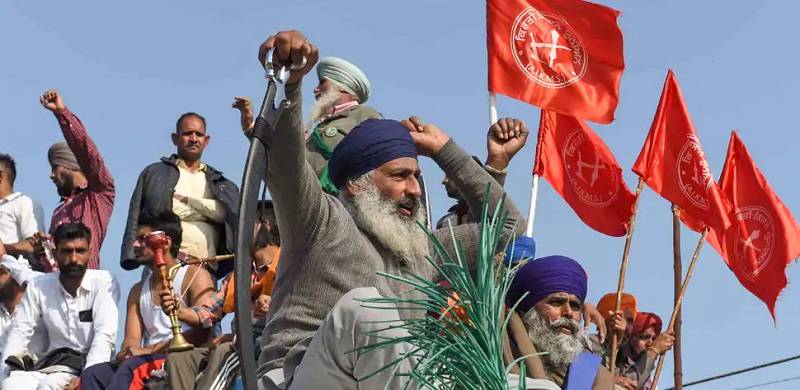
Farmers have marched from Punjab towards Delhi against the three agriculture bills recently passed by the Indian Parliament, with the slogan “Dilli chalo” (March to Delhi) and have reached the Delhi border, despite several impediments by the Haryana police. Farmers of some other states, too, have joined the agitation.
The Union Home Minister Amit Shah has now offered talks with the farmers on all issues, even earlier than 3rd December, which was the date earlier proposed for talks by the Union Agriculture Minister, Narendra Singh Tomar. The agitating farmers would be well advised to accept this offer.
It is true that Indian farmers have some genuine grievances: the principal one being that they do not get adequate remunerative prices for their products. They are also apprehensive that the new laws may be detrimental to their interests and place them at the mercy of certain corporate forces.
However I submit, with respect, that the path of agitation they have adopted will be unwise if continued any further. By the agitation so far, they have made their point. But now it is time for talks with the Central Government.
The agitating farmers must understand one thing: there is a principle of administration that the government must never succumb to pressure, for if it does, it will be perceived as weak, and then more demands and pressures will come. So if the farmers think that by this agitation they will make the government buckle down and surrender totally, they are mistaken. The government, through the Union Home Minister, has offered talks with the farmers on all issues, and it would now be best for them to accept this offer.
No doubt the earlier talks failed, but there is no harm making another attempt. Talks after the Korean War between the USA and China, and in later conflicts between USA and North Vietnam, failed several times. But ultimately they led to a successful compromise. The same may happen here.
The farmers' organisations have rejected the Union Home Minister's offer of talks. They say that it is conditional on the agitating farmers - who are presently gathered in several places - shifting to an open ground at Burari. This condition was perhaps laid down by the Home Minister as the farmers were blocking several roads, causing public inconvenience. In my opinion, the Home Minister should not insist on this condition, provided the roads were not blocked.
I fear that rigid intransigence and obduracy on the part of the agitating farmers may only result in violence, as happened on Bloody Sunday in St. Petersburg in January 1905, or in Vendémiaire in Paris in October 1795, when the mob was dispersed by a 'whiff of grapeshot' from Napoleon's cannons.
The Union Home Minister Amit Shah has now offered talks with the farmers on all issues, even earlier than 3rd December, which was the date earlier proposed for talks by the Union Agriculture Minister, Narendra Singh Tomar. The agitating farmers would be well advised to accept this offer.
It is true that Indian farmers have some genuine grievances: the principal one being that they do not get adequate remunerative prices for their products. They are also apprehensive that the new laws may be detrimental to their interests and place them at the mercy of certain corporate forces.
However I submit, with respect, that the path of agitation they have adopted will be unwise if continued any further. By the agitation so far, they have made their point. But now it is time for talks with the Central Government.
The agitating farmers must understand one thing: there is a principle of administration that the government must never succumb to pressure, for if it does, it will be perceived as weak, and then more demands and pressures will come. So if the farmers think that by this agitation they will make the government buckle down and surrender totally, they are mistaken. The government, through the Union Home Minister, has offered talks with the farmers on all issues, and it would now be best for them to accept this offer.
No doubt the earlier talks failed, but there is no harm making another attempt. Talks after the Korean War between the USA and China, and in later conflicts between USA and North Vietnam, failed several times. But ultimately they led to a successful compromise. The same may happen here.
The farmers' organisations have rejected the Union Home Minister's offer of talks. They say that it is conditional on the agitating farmers - who are presently gathered in several places - shifting to an open ground at Burari. This condition was perhaps laid down by the Home Minister as the farmers were blocking several roads, causing public inconvenience. In my opinion, the Home Minister should not insist on this condition, provided the roads were not blocked.
I fear that rigid intransigence and obduracy on the part of the agitating farmers may only result in violence, as happened on Bloody Sunday in St. Petersburg in January 1905, or in Vendémiaire in Paris in October 1795, when the mob was dispersed by a 'whiff of grapeshot' from Napoleon's cannons.
